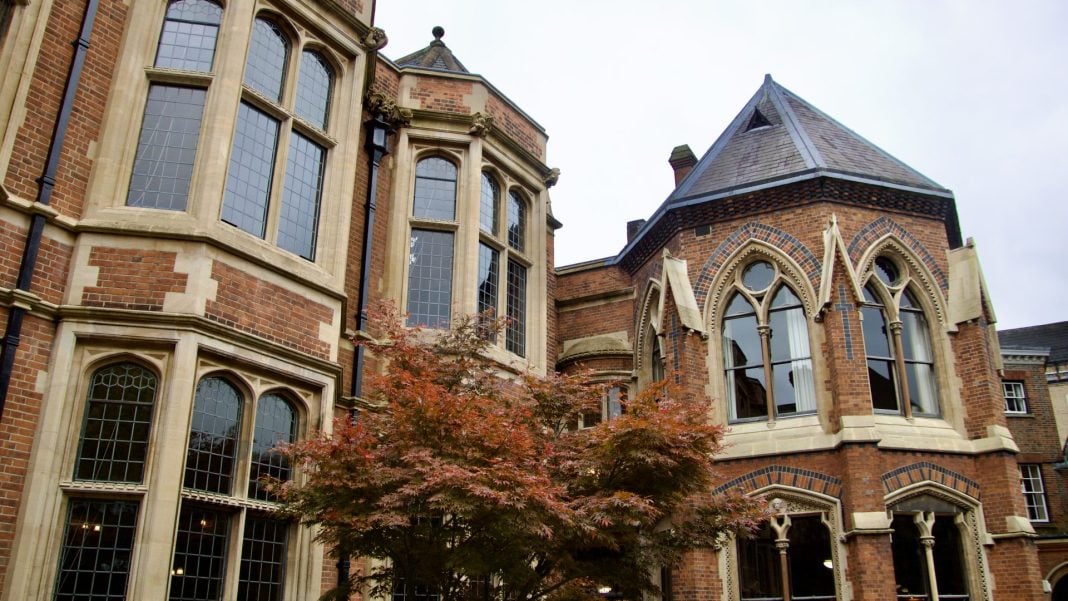How does one successfully get away with breaking the rules? The Oxford Union’s recent antics provide an elegant solution: sack everybody who could get in the way.
If you’ve recently stepped foot into the Union, you undoubtedly will have noticed a consistent air of discontent: from freshers to speakers, hundreds of visitors have expressed dissatisfaction at debates being derailed by student politics, and internal officials are being removed every few days. The early weeks of Michaelmas are usually the debating society’s most profitable, yet this term’s membership drive has been comparably underwhelming. Clearly, the institution’s recent record is rife with widespread incompetence, symptomatic of its ineffective and oppressive leadership.
President Ebrahim Osman-Mowafy seemingly could not have asked for a more united house near the start of term. As the candidate who inspired a walkout after being disqualified in Trinity, he detailed his disappointment in the Union’s Returning Officer and other electoral workers (colloquially referred to as ‘RO world’) in a speech before the term’s first debate. Proposing a list of rule changes that would reduce the power of ‘RO world’ and make the Union “more democratic,” President Osman-Mowafy passed the reforms through the house via a voice vote (the debating chamber yelled ‘aye’ louder than ‘no’).
A series of intense procedural disputes ensued, with Committee members trading claims of rule-breaking and invalidation. For one, the debacle took place during the Union’s open week, thus many of the voters were not even members of the society. Moreover, President Osman-Mowafy refused to hear selected objections against the reforms – for a society treasuring free speech, this displayed a great lack of self-awareness. Despite his claims that he has acted procedurally throughout, the rules change was recently reversed after a decision by the Oxford Literary and Debating Union Charity Trust (OLDUT), which owns much of the Union buildings and manages donations; this decision by OLDUT was directly acknowledged by Standing Committee. It is painfully clear that this was not some attempt to validly pass constitutional reform, but rather a planned exploitation of non-members in order to illegitimately force through overarching rules.
With the illusion of a new constitution in place, our President made no attempt to heed the Returning Officer’s warnings that his actions largely consisted of constitutional breaches and abuses of power. This was most blatantly exhibited the following week, when the appointment of electoral officials grew increasingly sour. Procedurally, applications for Deputy Returning Officer may only be struck if concerns are raised regarding their capability: this was not the case for three applicants who were struck without justifiable explanation, after not being allowed to defend themselves. That same week, three Deputy Returning Officers were later sacked on grounds of being “unfit, unwilling, or unable” to perform their duties, also without justification.
One might argue that perhaps this institutional reshuffling is rooted in good intentions, but this belief crumbles after a brief look at our new electoral team. Of the 12 Deputy Returning Officers appointed by Standing Committee, only three have worked in Union elections before, with five terms of experience between them; the six officials who were removed had a total of 18 such terms. Our new Returning Officer is a newcomer who matriculated mere weeks ago. The integrity of our elections and disciplinary proceedings now depend on Standing Committee’s handpicked appointees, largely selected out of friendship, rather than merit.
A culture of fear has festered across Union committees, following the removal or resignation of numerous officers: the Chair of Consultative Committee (a senior logistical role) recently resigned, citing a “depressingly toxic and hostile” atmosphere within the Union. Last week, the Librarian (among the officers, second in seniority only to the President) also announced his resignation, before engaging in a heated discussion against the President regarding the rules change.
It was Harold Macmillan who deemed the Oxford Union “the last bastion of free speech”. He’d be direly disappointed to learn that critics and electoral workers are being removed without explanation or pressured into resignation.
All three debates this term have now been delayed by Private Business, wherein the President has been challenged on his new rules. He accuses his questioners of attempting to delay debates, but things are not so insultingly simple. With committee members being quietly removed, it is only in the debating chamber that the President can be held to accountability. Amid this week’s questions, a division was called; this required the entire house to leave the chamber, including the speakers, in order to conduct a vote. The last time a debate was delayed by a division was two years ago, under a President who soon resigned.
President Osman-Mowafy attempted to change the rules in order to ensure that he no longer had to attend Access Committee meetings, which operate solely to help the Union meet the physical, financial, and personal needs of all members. Due to the poor distribution of the rule changes, most members are conveniently unaware that the President has shifted his own responsibilities. To believe that the Union’s leadership is entirely honest requires naïveté beyond measure.
In his manifesto, President Osman-Mowafy pledged to make the Union more ‘transparent’, yet he refused to recognise that his reforms were invalid. He promised that the society would be more ‘accountable’, yet he has had numerous critics sacked. He vowed to ensure that the Union was more ‘engaging’, yet his tenure has produced disappointing membership numbers. His term as President has been marred by what is at best continued incompetence, and at worst, a knowing disregard for the society’s rules, history and members. Osman-Mowafy has taken advantage of votes by non-members, illegitimately removed opponents from roles, refused to publicly answer questions, contradicted the judgement of the trustees, and surrounded himself with personal appointees. He is a man who has fostered an environment of hostility to keep his critics silenced. It is thus the unwavering belief of this writer that President Ebrahim Osman-Mowafy must resign.


